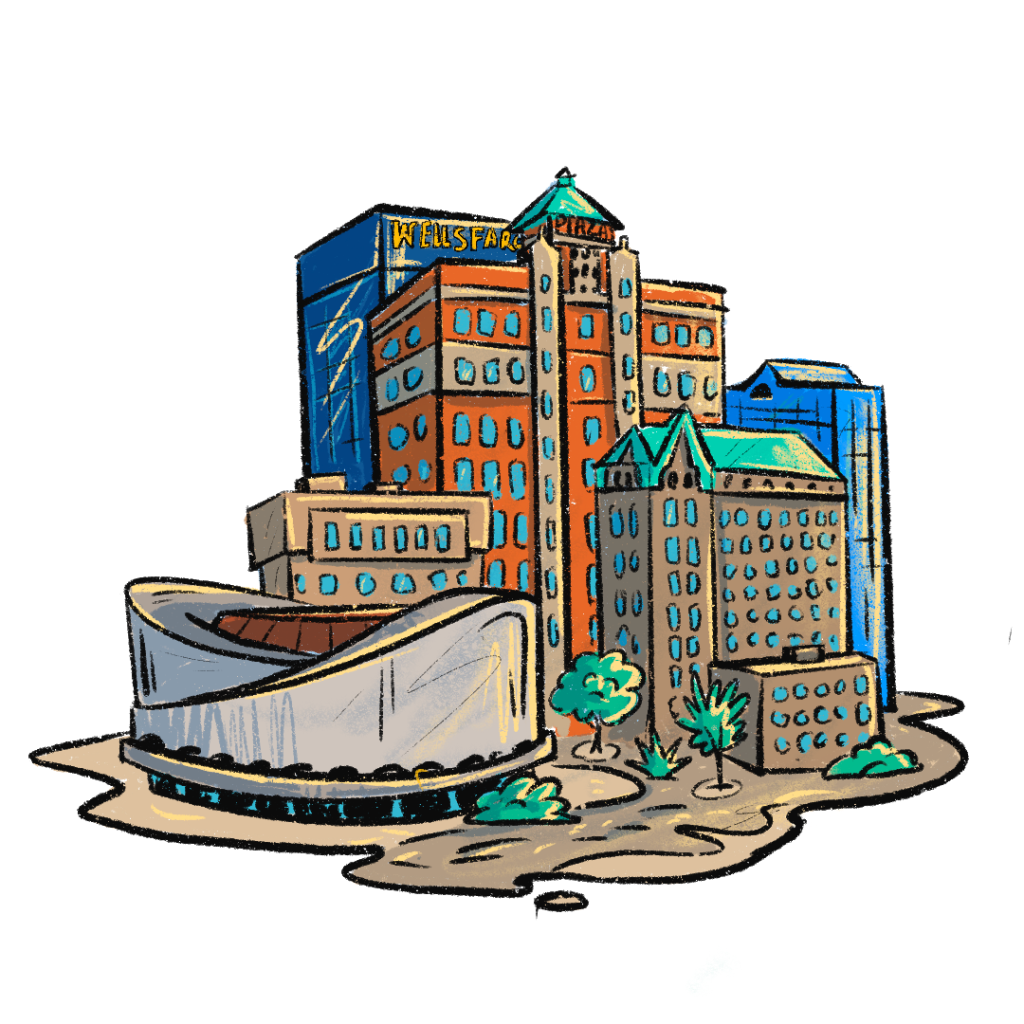As El Paso businesses and activities have reopened during the continued spread of COVID-19, Dr. Armando Meza, chief of infectious diseases at Texas Tech Physicians of El Paso, sheds light on how to cautiously navigate life amid the pandemic.
El Paso Matters asked Meza a variety of questions about what people should be looking out for now that summer is here and more people are leaving their homes to participate in a variety of activities.

Question: Is it safe to swim in a public swimming pool?
Answer: It is safe provided you follow physical distancing rules and you wear a cloth face cover when possible as well as maintaining hand hygiene. Practicing these behaviors is very important.
Q: Could the water be contaminated or do people need to be more concerned with surfaces such as benches, tables, or lounge chairs?
A: It is unlikely that the water will have a large amount of virus. Additionally, the chloride in the water should kill the virus. Benches, tables and/or chairs are more likely to have the virus, potentially infecting people. You should clean and disinfect those areas prior to using them.
Q: Are public sports facilities and gyms safe to go to?
A: Yes, provided individuals understand physical distancing is the safest way to prevent infection. Cloth face coverings and hand hygiene should also be adhered to. Frequently used equipment needs to be cleaned and disinfected prior to each use.
Q: What is the best fabric to use for a homemade face covering?
A: Cotton is the best material.
Q: If you have purchased a surgical mask, how often can it be re-worn?
A: Surgical masks are intended for single use for the most part. If the material is washable then it could be reused. Masks should be washed after each use.

Q: Does leaving the mask in the heat or direct sunlight kill germs that may have landed on the mask?
A: Heat and sunlight kill the virus. However, if you leave your mask in the sunlight, there might be a breakdown of the material so you need to check the integrity of the mask frequently.
Q: If a relative is traveling from out of state, how do you prepare for that visit during the pandemic?
A: You need to determine how likely this individual could be infected based on the location where they are traveling from; what is the risk of exposure from their occupation; and what is their interaction with other people. The safest way would be for this individual to quarantine prior to visiting even though this may be impractical. One suggestion would be to wear a face mask and practice physical distancing as much as possible.
Q: Does wearing a mask and disposable gloves reduce the chances of COVID-19 if the gloves are removed after each use?
A: Wearing a mask definitely helps to reduce the risk of getting infected. Wearing gloves does not have clear-cut benefits since the risk of contamination is high if the gloves are not properly removed from your hands.

Q: As a medical professional, would you go to a restaurant or public place like a bar or retail store? What precautions would you take if you go?
I prefer not to participate in any activities outside of my home environment if possible. The highest risk of acquiring the infection will be in the public setting: where people do not wear a mask, where there is an enclosed environment, and the time spent is greater than 15 minutes.
Q: As a medical professional, what sort of personal protective equipment do you use when having to buy groceries for yourself or your family?
I follow the recommendations of wearing a face mask and I carry a bottle of hand sanitizer that I use frequently. I also practice social distancing and hand hygiene.
Q: How do people protect themselves while volunteering for local organizations?
The same way that you should protect yourself in any other scenario, which is physical distancing, wearing a face mask, and frequent hand hygiene.

Q: Can people catch COVID-19 on public transportation like riding the bus or through rideshares?
Yes. The risk is high if they do not adhere to social/physical distancing, do not wear a mask or do not follow hand hygiene. Evidence also shows that the risk of infection is much higher in poorly ventilated, crowded areas.
Is it the close quarters or the surfaces that people should be concerned with?
Close quarters have a higher risk of infection because the virus can stay longer in the air than on surfaces. Close quarters are also higher risk due to the fact that people spend more time indoors than they typically do outside. The coronavirus risk is higher in tight, indoor spaces with little air flow.
Q: With everything opening up, should at-risk populations – such as the elderly or those taking care of them risk going out to restaurants or out shopping?
A: The risk of infection is going to be there except when you are totally isolated from society. You have to make an informed decision about what activities you consider important for you and if you are willing to take the risk — knowing you might be putting someone else’s health at risk.

Q: Is it safe to take children to splash pads and public parks?
A: It is safe provided you understand the risks, and you keep the above-described precautions in mind. Remember that children will have a hard time remembering or understanding the risk of infection so you need to be a resource for them and enforce it.
Q: What is the likelihood of catching COVID-19 in an outdoor setting?
A: It’s lower compared to an indoors environment.
Q: How should people that are dating approach their first meeting during the pandemic?
A: The virus “doesn’t follow” the rules of dating. Therefore, the same recommendations apply to anyone that is exposed to someone else: adhere to social distancing as possible, wear a mask and practice hand hygiene.
Q: What is the best way to isolate, or quarantine, if you have tested positive for COVID-19 and live with more than one person?
A: You should set up a room within your home to be able to stay by yourself during the quarantine and at the same time be able to communicate on a regular basis especially if you need to go to the hospital. All the contact you should have with your family should be indirect.
Q: Should you get tested for COVID-19 if you do not feel sick?
A: You can get tested if you feel compelled to do so, however, you need to understand that with the current testing methods that we have, there is a chance that the results may not be reliable. This means you may have a negative test even if you are infected. Hopefully, in the near future, we will have better tests that can minimize the error risk.
Q: If you have been exposed to a person with COVID-19, how long should you wait until you get tested?
A: The incubation time is up to 14 days. You should get tested if you develop symptoms such as: cough, fever, shortness of breath or any changes in your taste or smell. This is when the highest yield of getting tested is to know whether you’re infected or not.
Q: Why are people with underlying health conditions more at-risk of complications if they contract COVID-19?
A: The virus will kill the cells of your lungs, but the reaction of your immune system will also damage them and other organs by the inflammatory response that is developed after the infection. Individuals with underlying health conditions have less reserve to assist the attack of the virus and the response of your immune system.
Q: What is the best approach to traveling if necessary? Should people avoid travel by air, or train, etc.
A: Travel only when needed. Practice physical distancing, use a face mask, and practice hand hygiene.
No particular travel is free of risk. You should take precautions depending on the exposure risk for each travel method. If you are traveling by car, for example, be aware that you will be potentially exposed at the gas station, rest area, and restaurant you may visit. Physical distancing, face mask wearing and hand hygiene should be followed in these scenarios.
Q: Are hotels safe to stay at?
Generally speaking, yes. Hotels are adjusting to the needs of the clients in a way that the maximum protection is provided when staying at any of those facilities.
Q: What do you worry about the most regarding COVID-19?
A: The population will get mentally fatigued and will not follow these measures.
Cover photo: Players on a youth football team work through conditioning exercises at Marty Robbins Park on Tuesday, June 23. Many El Paso children have been at home for months due to the coronavirus pandemic. (Corrie Boudreaux/El Paso Matters).



